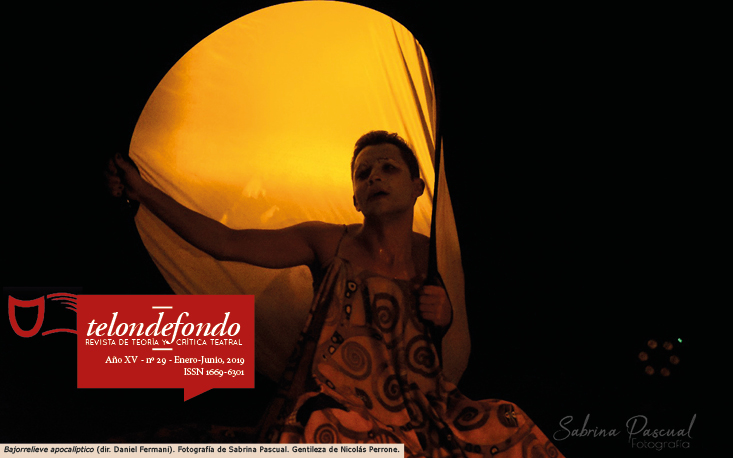The Reconstruction of Collective Memory: Theatricality and the Public Space
Abstract
After the depoliticization which, during the 2001 crisis, reached all spheres of Argentine society, the interventionist and transformative capacity of politics was rediscovered, as well as the fundamental role that culture has in the construction of the social order. Far from the nihilism of “the end of the Social” (Baudrillard), theatre goes out on the street physically and metaphorically, occupying and resignifying the public space, aiming to assume its dissident potential and to recognize itself as a privileged channel for the circulation, visibilization and production of discourse. In this essay, we will refer to different theatrical actions and urban interventions carried out by collectives such as Fin de un mundo and Compañía de Funciones Patrióticas. The political dimension of all these situated events lies in the interpellating efficiency of direct action and in their connection with a specific territory. These artistic practices appear as a force that disrupts the city’s everyday reality. Also, they encourage an association with social movements in order to restore theatre’s power to contribute in terms of identity building, operating as an act of resistance and strengthening community bonds. In the same way, and as a complementary effect, by intervening the public sphere, the art experience changes its own conventions and codes.Downloads
Los autores/as que publiquen en esta revista aceptan las siguientes condiciones:
-
Los autores/as [traductores] conservan los derechos de autor y ceden a la revista el derecho de la primera publicación, con el trabajo registrado con Licencia Creative Commons Atribución-NoComercial-CompartirIgual 4.0 Internacional, que permite a terceros utilizar lo publicado siempre que mencionen la autoría del trabajo y a la primera publicación en esta revista.
-
Los autores/as pueden realizar otros acuerdos contractuales independientes y adicionales para la distribución no exclusiva de la versión del artículo publicado en esta revista (p. ej., incluirlo en un repositorio institucional o publicarlo en un libro) siempre que indiquen claramente que el trabajo se publicó por primera vez en esta revista.
-
Se permite y recomienda a los autores/as a publicar su trabajo en Internet (por ejemplo en páginas institucionales o personales).











